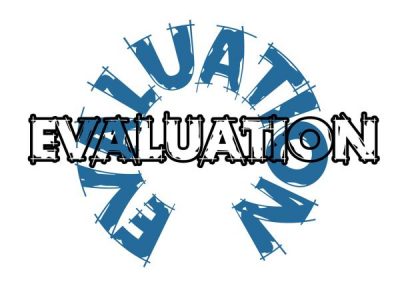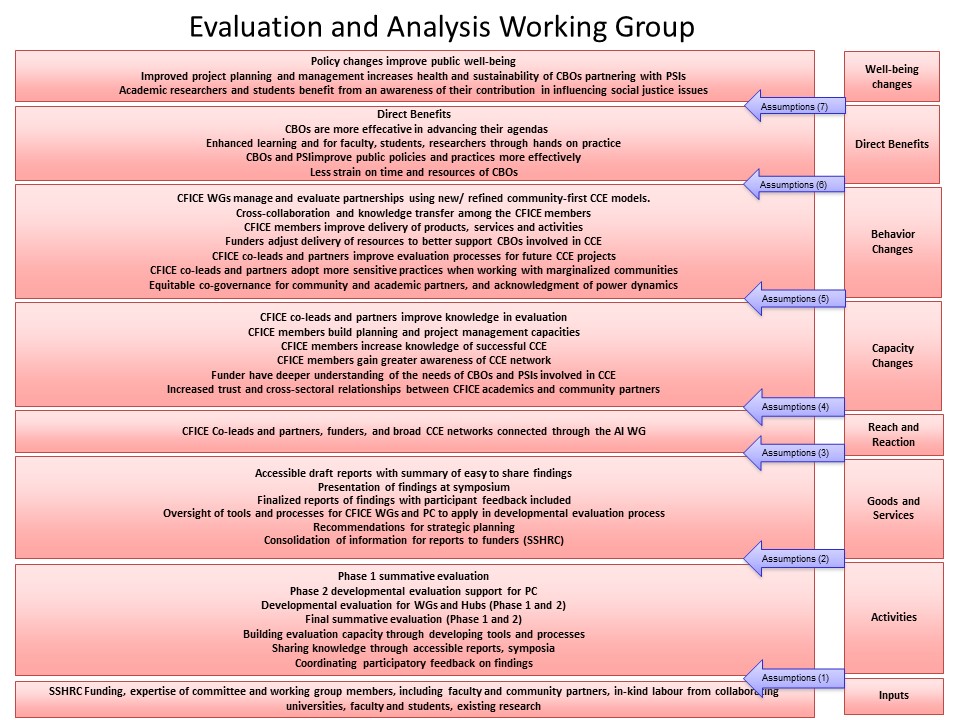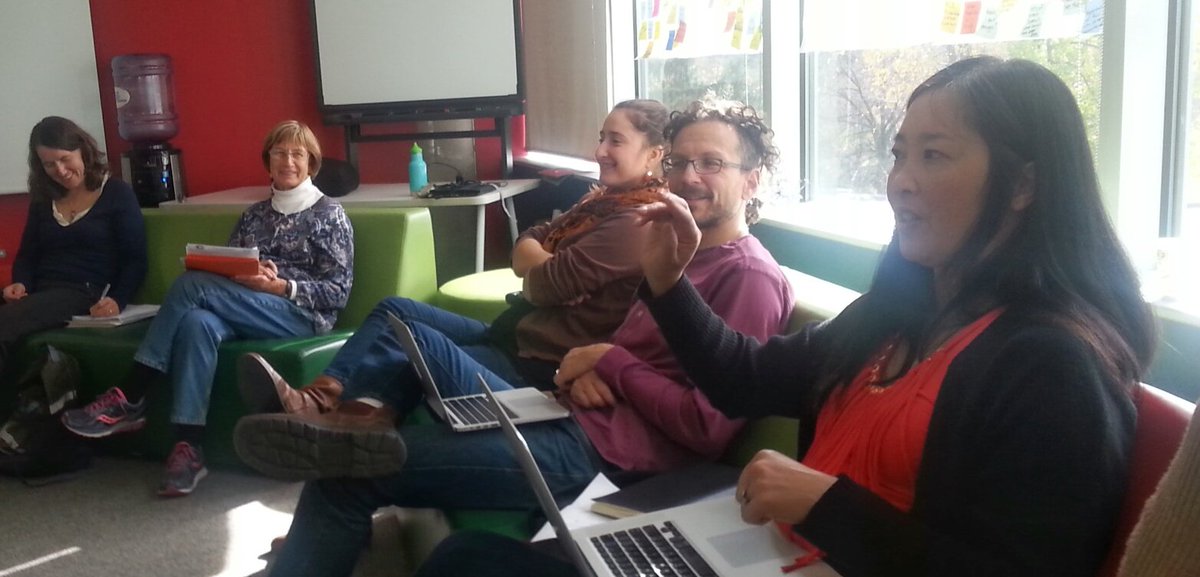By Magda Goemans, Evaluation and Analysis Working Group RA
 At our recent Program Committee meeting on October 25, members of CFICE working groups got a chance to participate in a developmental evaluation exercise, which helped us to refine intended goals and ways of working as we continue our respective journeys within the CFICE project. I participated in this exercise as a member of the Evaluation and Analysis working group, which aims to analyse and disseminate lessons learned through cross-project evaluation within CFICE, as well as to support other working groups in their own evaluation and knowledge dissemination efforts.
At our recent Program Committee meeting on October 25, members of CFICE working groups got a chance to participate in a developmental evaluation exercise, which helped us to refine intended goals and ways of working as we continue our respective journeys within the CFICE project. I participated in this exercise as a member of the Evaluation and Analysis working group, which aims to analyse and disseminate lessons learned through cross-project evaluation within CFICE, as well as to support other working groups in their own evaluation and knowledge dissemination efforts.
The exercise was led by Julie Johnston and Marina Canalejo, two Diploma in Program Evaluation (DPE) students at Carleton. Together with Laurent Tran, these students are nearing completion of a developmental evaluation of our large community-campus partnership project. Through this evaluation process, Julie, Marina and Laurent are assisting CFICE in staying on track with its operational goals, and are advising CFICE participants about how they can most effectively work together (for example, by considering issues related to governance, communication and power sharing) to implement key lessons and objectives moving forward into Phase II of the CFICE project.
The first part of the exercise involved a review of our working group Theory of Change model. This model maps a path from our working group’s activities to resulting goods and services (aka outputs) and finally, to intended outcomes of capacity, behaviour and well-being changes. Our review resulted in relatively minor modifications being made to our Theory of Change, which included adding greater emphasis to fostering equitable co-governance, and to acknowledgement of power dynamics within CFICE operations (see resulting Theory of Change in Figure 1 below).

The Evaluation and Analysis Working Group’s theory of change (as of November 2016).
Next, we were asked to review a table of risks and assumptions associated with Evaluation and Analysis working group goals. This exercise required us to consider assumptions that we hold within our working group, including: (1) that other CFICE working groups will understand the value of evaluating their work, and will actively participate in this process, and (2) that working groups will be able to implement evaluation findings within meaningful time-frames, resulting in beneficial community impacts that will be sustained over the long term.
Overall, members of the Evaluation and Analysis working group found this developmental evaluation exercise to be very useful in shaping current and upcoming Phase II activities, and we appreciate the efforts of the DPE students in fostering this type of discussion. This process really inspired us to think about how our working group informs the work of other CFICE working groups, and how it aims to meet the needs of community partners in this project.

CFICE Members planning together at the Oct. 25 Program Committee meeting. ©Jason Garlough
This exercise was also quite timely, as members of the Evaluation and Analysis working group undertake planning for a CFICE Community Impact Symposium to be held in early 2017. This symposium will bring together CFICE community and academic partners to share key lessons from Phase I of the project, and to think about how to communicate these learnings to a diverse group of stakeholders involved in community-campus engagement (CCE). The symposium planning process — particularly as it relates to our engagement with community partners — has influenced our understanding of how power may influence interactions and outcomes, motivated us to work towards a common language and culture in CCE, and reinforced the importance of advancing CCE initiatives in ways that are truly meaningful to community partners.
As we move toward the symposium and beyond, we hope our work in Phase II of CFICE will foster strengthened and long-term relationship-building between CFICE participants, and continue a course toward beneficial and lasting change for communities. We believe the opportunity to assess our progress during the Program Committee meeting evaluation exercise greatly informed and enhanced this effort.